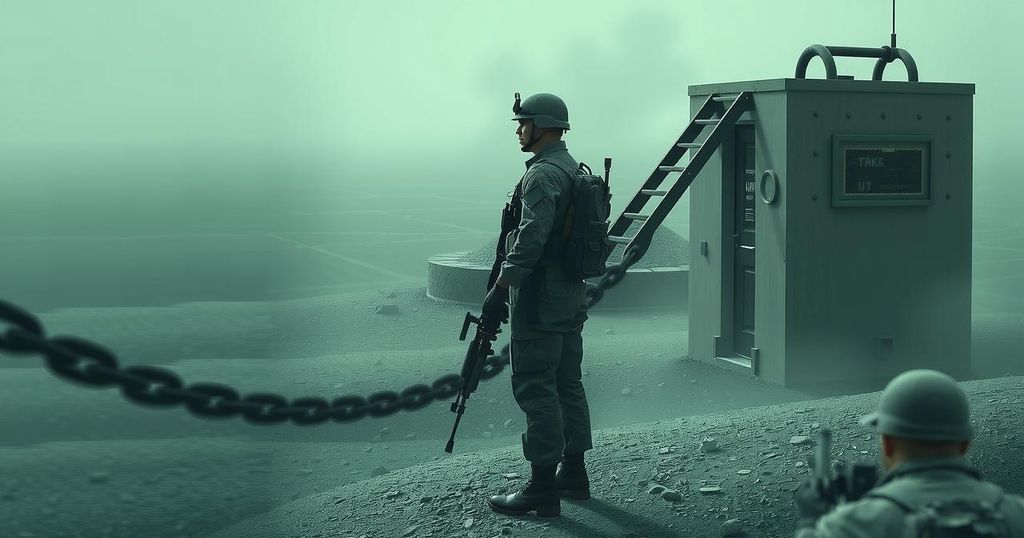Trump’s Remarks at Fort Bragg Blur Lines Between Military and Partisan Politics
President Trump’s address at Fort Bragg has raised significant concerns about the merging of military affairs with partisan politics, particularly in relation to the recent deployment of troops in Los Angeles. Critics, including former West Point professor Graham Parsons, warn that such actions could undermine constitutional order and politicise the military in dangerous ways.
President Trump’s comments during his speech at Fort Bragg raised alarms concerning the intertwining of military engagements with partisan politics. The remarks were reportedly delivered before a crowd selected for their political leanings, which is raising eyebrows, especially with MAGA merchandise being sold right there on a military base. The line between the military and political activism seems to be blurring more each day.
Geoff Bennett addressed the situation surrounding Trump’s troop deployment in Los Angeles, which appears controversial. This week, we have hundreds of Marines and thousands of National Guard personnel mobilised against the wishes of Governor Gavin Newsom. This is how far things have escalated. It’s now being viewed as a response to civilian protests, which, according to some, isn’t the military’s forte.
Amna Nawaz turned the conversation to Graham Parsons, a former philosophy professor at West Point who left his post last month due to growing concerns about political interference in military education. Parson expressed grave concerns about the Trump administration’s approach, stating, “It’s a law enforcement issue, very different from war.”
Parsons emphasised that the law enforcement aspect must align with constitutional rights, a fundamental principle in democratic governance. By militarising a law enforcement issue, there’s a risk of undermining civilian rights and normalising military interventions in domestic matters, a slippery slope that could lead directly to martial law and the dismantling of constitutional order.
The former professor categorically states it’s now a political conflict, equating the protests to opposition against the administration rather than genuine civil disobedience. Calling the protesters disparaging names, the Trump administration seems to alienate them from their own nation.
Nawaz provided a sample of Trump’s comments from Fort Bragg, where he engaged in typical banter about the size of his audience, laughing dismissively about Biden’s appeal. Such comments, laden with partisan rhetoric, could easily be interpreted as an inappropriate mingle of military settings and electoral politics.
Graham Parsons commented on reports from Military.com indicating that soldiers were selected based on political bias and physical traits for the crowd. The selling of political merchandise at a military base amplifies the concern of a once-clear boundary between military service and politics becoming alarmingly porous.
“This is in grave danger,” Parsons stated. According to him, events like these are symptomatic of a broader trend where military gatherings are becoming political rallies for Trump rather than dedicated to service. He warns that the military being politicised sends a dangerous message about loyalty, potentially fortifying divisions in society.
As if that isn’t enough, there’s a military parade coming soon, coinciding with the Army’s 250th anniversary and also President Trump’s birthday. But Parsons notes this isn’t a typical tribute to the armed forces; the planners made it clear it’s more about glorifying Trump’s military policies. The celebration takes on a different tone when it’s framed as an endorsement of a political figure’s agenda rather than an appreciation of service personnel.
Graham Parsons concluded with a stark warning about the implications of such events, asserting the manipulation of military platforms to further partisan ends cannot be understated. He believes it’s a time for serious reflection on the future of the military’s role in politics, a role that, if unchecked, could have dire consequences for the nation as a whole.
In sum, President Trump’s address at Fort Bragg highlights a concerning trend of merging military engagements with partisan politics. With soldiers reportedly screened for political leanings and merchandise being sold on military grounds, there’s an unmistakable risk of eroding the established separation between military and politics. Experts like Graham Parsons stress the potential dangers ahead if the situation worsens, noting that this development poses a significant threat to constitutional order and the integrity of the armed forces as apolitical entities.
Original Source: www.pbs.org
